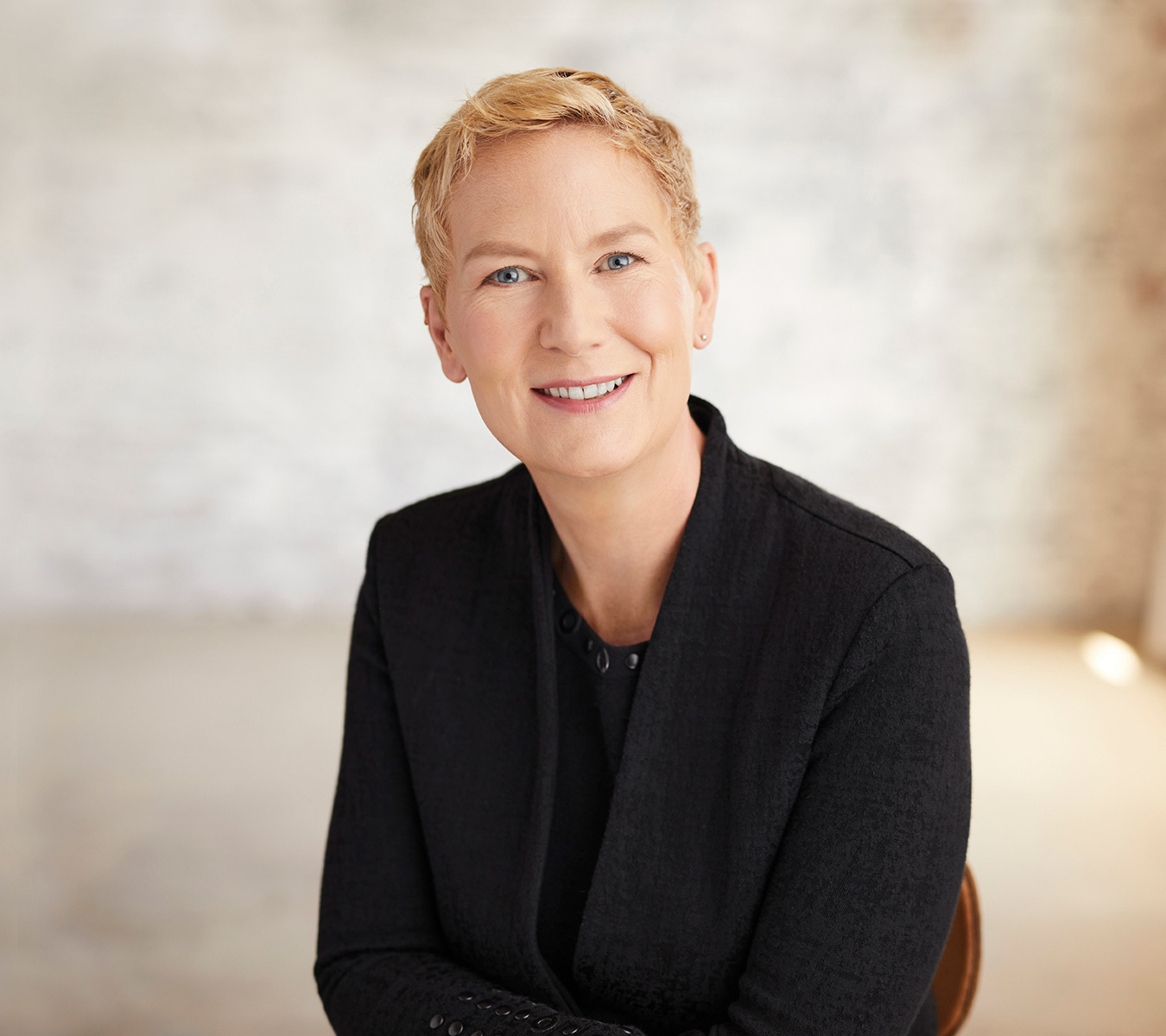Spotlight Profile: Laura Bennett, FSA, Part 1
By Arthur da Silva
Innovators & Entrepreneurs, February 2023

This series of articles will interview actuaries in non-traditional, innovation-focused roles. With this series, we hope to expand awareness of the ever-growing reach of the profession in the E&I arena. If you know of someone that should be featured in this series, please reach out to us.
—Happy reading! Sam Wehner, Karina Kao, and Frank Siu, Editors, E&I Section Newsletter
In this three-part interview that took place during June 2022, Arthur da Silva, chair of the SOA Entrepreneurial & Innovation Section, sits down with Laura Bennett to speak about her journey both as an entrepreneur and innovator as co-founder of Embrace, a pioneering pet insurance company, and as president of the North American Digital Consumer Division at Blink by Chubb. Part one covers her career journey and observed differences in working at a start-up compared to working at a traditional actuarial employer. Parts two and three, to be released in future issues of the newsletter will touch on her views on innovation, examples of innovation, the process of making an idea into reality, challenges encountered, advice for actuaries looking to innovate, qualities needed for actuaries to thrive within an entrepreneurial or innovative environment, and unique skillsets that actuaries bring to start-ups.
If you want to hear more from Laura, the Entrepreneurial & Innovation section plans to host a panel webcast in late March 2023 with two other actuarial entrepreneurs, Ian Duncan and Kevin Pledge, to discuss their experiences in building a company and innovating.
Arthur da Silva (AS): Could you introduce yourself and describe your career journey?

Laura Bennett, FSA,
president of the North American
Digital Consumer Division at Chubb
Laura Bennett (LB): So, I’m Laura Bennett and I just officially changed roles, or should I say, expanded my role. Today, I am the president of the North American Digital Consumer Division at Chubb, but let me start briefly at the beginning. I started off as mostly a corporate actuary at Canada Life in Toronto, Ontario and in Dublin, Ireland—12 years in Canada Life, of which four were in Dublin and eight in Toronto. I did the usual rotation around the departments. I retrospectively realized that they put me in places that either needed to be fixed or to be built and they didn't seem to worry that I've never done any of those things before, like “ALM department? We don’t have one. Go ahead and make one.” I said that I had never done ALM before and they responded that it doesn't matter and that you'll learn it. So, they spotted my skills in that respect, but after 12 years I realized that the corporate world was perhaps not for me. So, I actually went and got my MBA at the Wharton School of Business with the expectation, actually, that I would have to get out of insurance. I was a qualified as an actuary at that time, but I didn't think that there would be anything that would suit my nature in insurance. I didn't know enough.
So, I ended up with my experience at Wharton putting together a business plan for a business plan competition, which is a big deal at these schools. It was on the topic of pet insurance because a friend's cat got sick and her family discovered that the world of pet insurance in the US was really poorly done. We won that business plan competition as a group, graduated and then I thought that this is something that I have unique skills to address. There was no actuarial science applied to pet insurance at that time. So, using basic principles and the fact that it's actually Property & Casualty insurance, I had to switch over to a different world even though it's Health insurance by nature, but Property & Casualty by law. So, I basically applied basic principles and co-founded Embrace Pet Insurance, a pet health insurance company with a digital end-to-end experience, as the CEO and co-founder with my partner Alex Krooglik for 14 years. So, that was 2003 and it was prior to the InsurTech movement, but we raised venture capital funding. We got different insurance partners because we were an MGA and the company really grew over that time from being two people with a business plan to just over $50 million in gross written premiums when we left. So, it was a decent size and just hitting its stride at that point and growing really well since, building up over $300 million.
After I left Embrace, I took a break and did some consulting during the two-year break due to my non-compete clause. Recovered from doing a start-up, which is not easy, and then ended up at Chubb in the role where I was asked to build a digital insurance product set that's aimed at millennials. So, over the last three years I've been building that and they said, “Great, you're doing fine on that. Let's add more digital business to you.” So, I've picked up existing portfolios of business—specifically, the digital piece of that because they were being done as side projects. They've given it to me to build out the digital experience for customers from this broader set of consumer products that are Chubb in North America.
What made you join your current employer?
AS: That is fantastic. So, what made you join Chubb specifically?
LB: So, I had been an entrepreneur for 14 years and was somewhat in charge of my own company, the vision of the company, and so on, which was very much stand alone. Yes, we had investors but apart from that we had no other support system. So, when I left that, I wanted to build something again. I realized that insurance was my thing and building a business was my thing. But, I had also recently got divorced, so I needed financial stability. I didn't think that doing another start-up would bring that. It would have brought not only instability, but also would have added the amount of hours that you need to put into a start-up. My girls were teenagers and as much as you think teenagers are fine, they need you the most at this age. You need to be paying attention and I thought that if I did a start-up, then I wouldn't be able to do that. So, I looked for something where I'd get paid but still get to build things. And an opportunity came through a friend who said, “Laura, you should consider this position.” And I wasn't really all that keen because it was a large corporate. But, I got talking to the people and realized that it was a fabulous opportunity and the way it was being structured seemed like it was set up for success. So, I thought, “Well, I'll try it and see.” If it was a bait-and-switch, then I would leave [laughs]. But it has not been so. It's been an amazing experience.
How did you prepare yourself for your non-traditional roles, if at all?
AS: How did you prepare yourself for these non-traditional roles both at Embrace and Chubb? Did you prepare in the first place?
LB: That's an interesting question, but I think I was just really lucky to have the break by doing my MBA. Without knowing it, that was the preparation because it's a break from the standard corporate and getting paid. So, I was paying to go to do my MBA. No one was paying me, so I was kind of used to the idea of not making any money [laughs].
Then it opened my mind to so many possibilities. I thought that, when I went to Wharton, my goal would be to join maybe a fast-growing company that needed to add leadership and that I would bring that. But, I got this opportunity to do a start-up and it opened my mind to just accepting fascinating and interesting possibilities like that. So, I think that was really the preparation that I did. When you do a start-up, you have to do so many things that you never thought that you would do and you have to be really open to putting yourself in extreme discomfort. For instance, if you're an introvert, pitching people to being a strong negotiator—all these things that you might not have felt that you had the skills for, you just have to have them since there's no one else. If you're going to succeed, you've got to do them. So, it opened my mind to being able to do those kinds of things.
What are the major differences you’ve noticed in your current work environment from a traditional actuarial employer (e.g., insurer, actuarial consulting, etc.)?
AS: You basically answered the next question quite well while saying that [laughs]. In terms of major differences that you noticed both at the start-up and at Chubb, what was different than the traditional actuarial employer? You already mentioned the different things that you have to do, so was there anything else that you could add to that?
LB: Well, you don't have a backstop. At least going into a standalone startup that you were responsible for, you know there is no one there to bail you out or easily put in another investment. So, that was incredibly stressful, the funding element of it. And, you have the benefit of complete flexibility, which can be a challenge because it's a little bit more chaotic. Even at Chubb, you can think of it as a start-up within a very large organization and we're separate and not part of the main Chubb. So, it allowed us this flexibility, but we did have a financial backstop. So, while you've got to keep justifying their investment, it’s different than from a VC perspective.
AS: So, mainly not having a backstop but having a lot more flexibility. Just to follow up on that, did you find that the way the work was done was very different as well?
LB: Yes, I think so. In traditional roles, everything is very well defined. You know what you're doing: Calculating reserves, pricing, or whatever. You're part of a bigger picture and you know exactly your role. In a start-up environment, you have a guideline of what your role is in that you've been brought in to do something specific. But, the fact is that everybody has to be all hands on deck even for the things that they aren’t particularly trained in and, so, you’re much more nimble, but you also have to dive in and do so much more that you might not actually like to do. But you sort of have no choice, but it's the greater good, you know? As long as you see everything moving forward, everyone pitches in. But, it gives this incredible camaraderie and it does mean more to you if you’re doing it for your own benefit such as if you're investing money and time, whether it's in lower wages, working ridiculously long hours, or both. Or, you're actually even investing your money if you have any. And you know, it's personal—so there's a different commitment amongst that and it's a very different way of how it works.
End of Part 1
Stay tuned for parts 2 and 3 of this interview to come in future newsletter issues as well as Laura’s spot on a panel webcast hosted by the Entrepreneurial & Innovation section this April with fellow actuarial entrepreneurs.
Statements of fact and opinions expressed herein are those of the individual authors and are not necessarily those of the Society of Actuaries, the newsletter editors, or the respective authors’ employers.
Laura Bennett, FSA, can be reached at Laura.Bennett@chubb.com and at her LinkedIn.
Arthur da Silva, FSA, FCIA, is a senior manager and actuarial innovation lead in Deloitte’s Actuarial & Insurance Solutions practice in Toronto. He can be contacted at arthurdasilva@gmail.com and at his LinkedIn.
